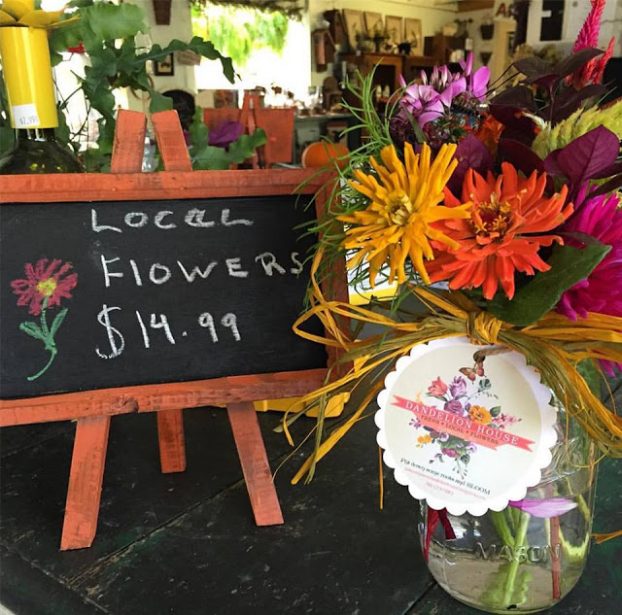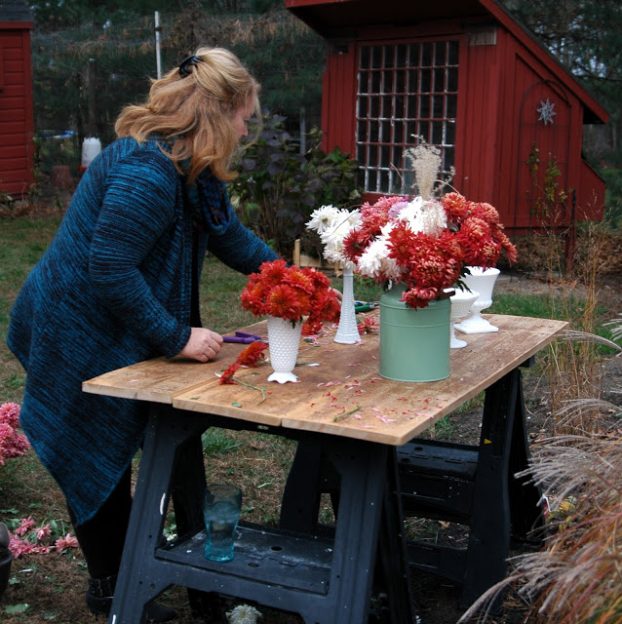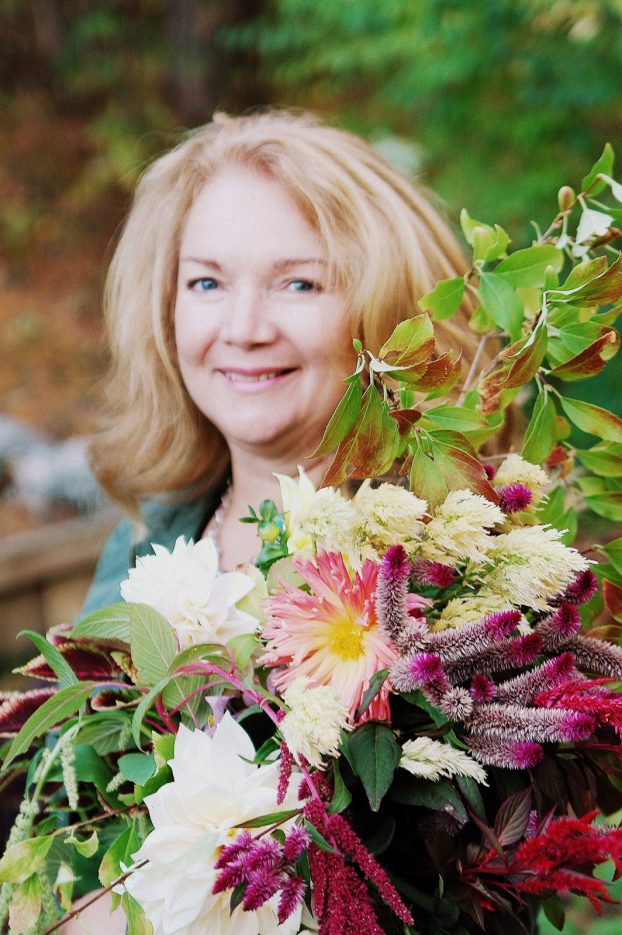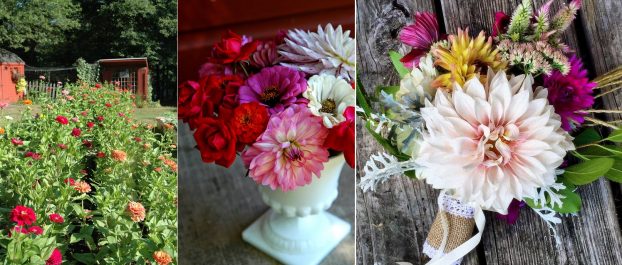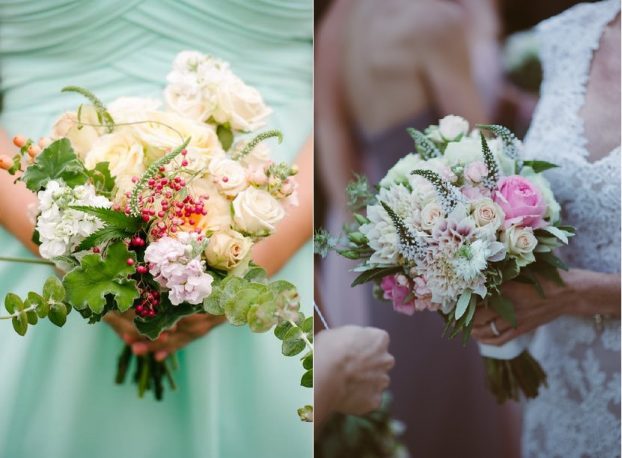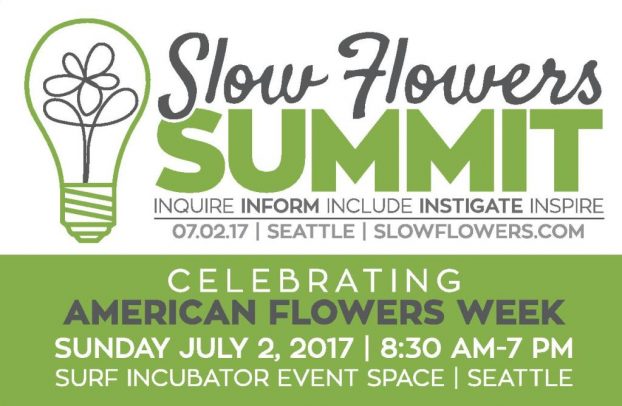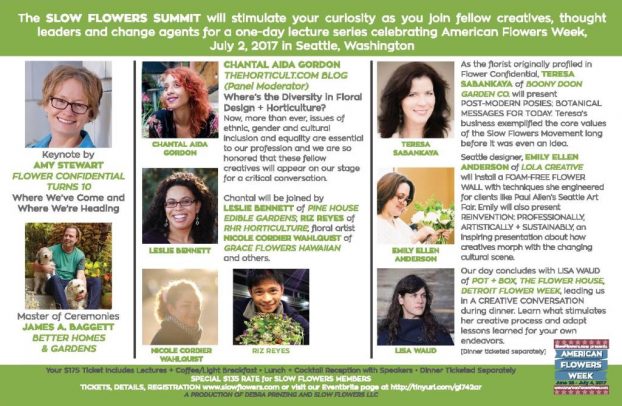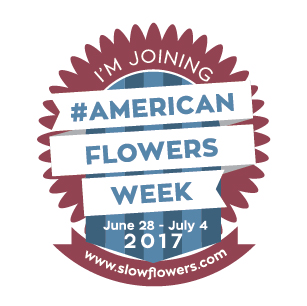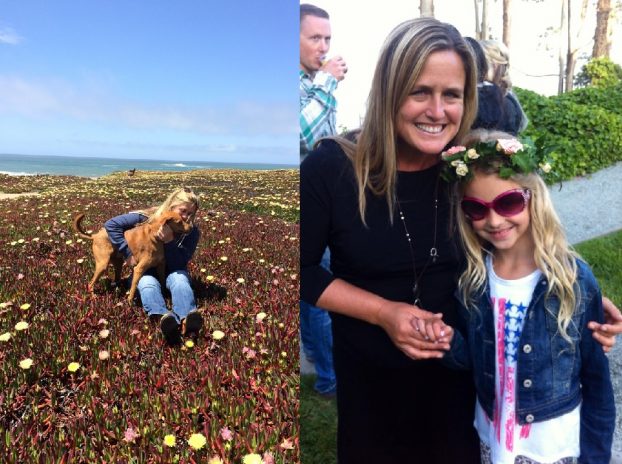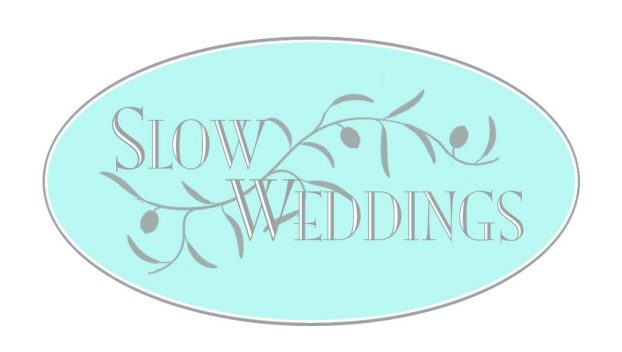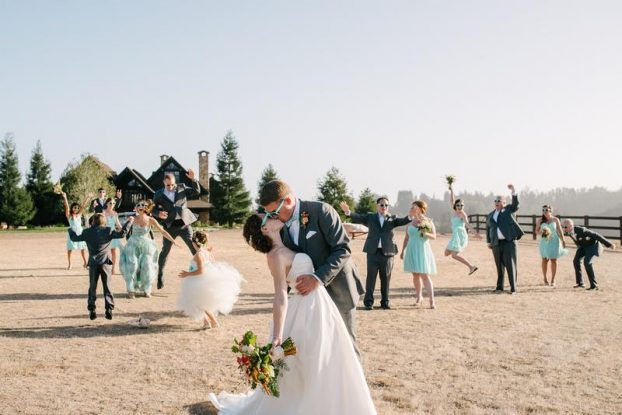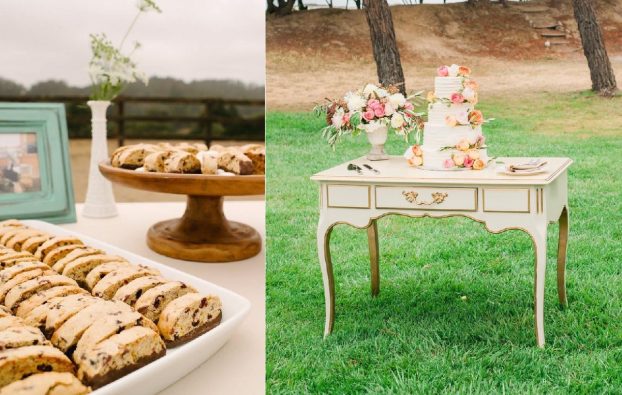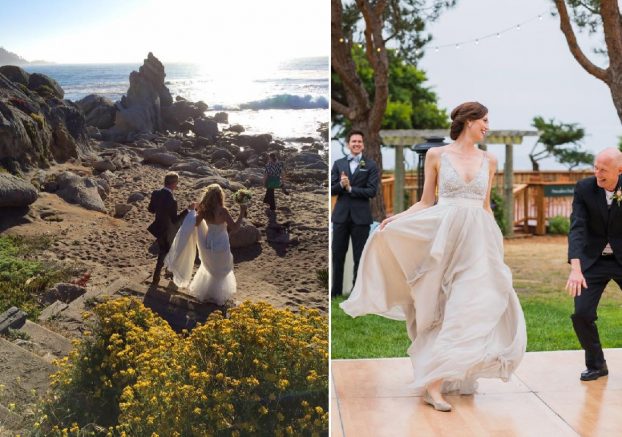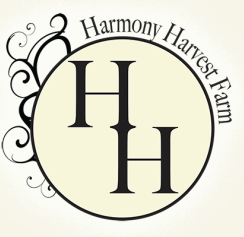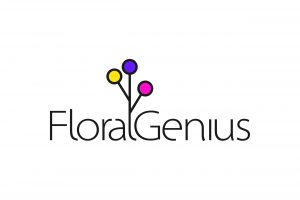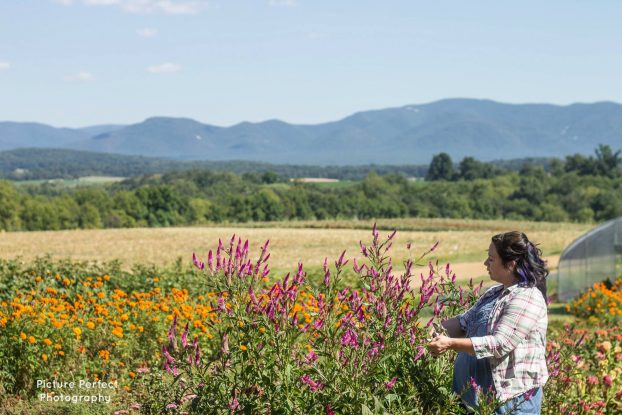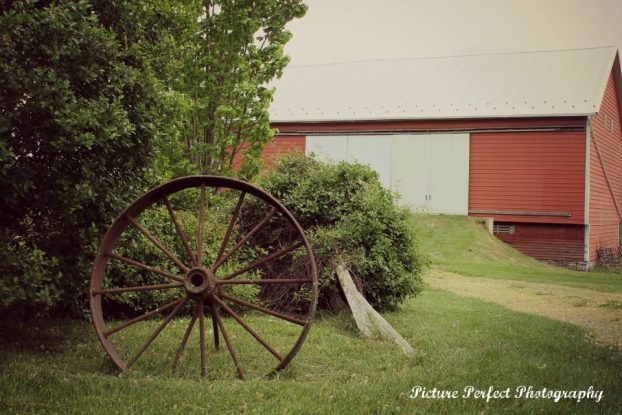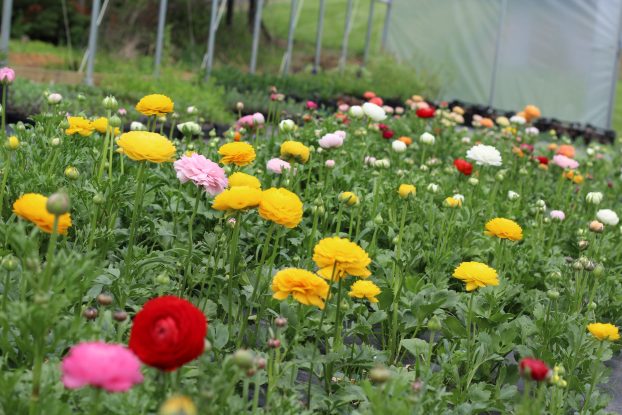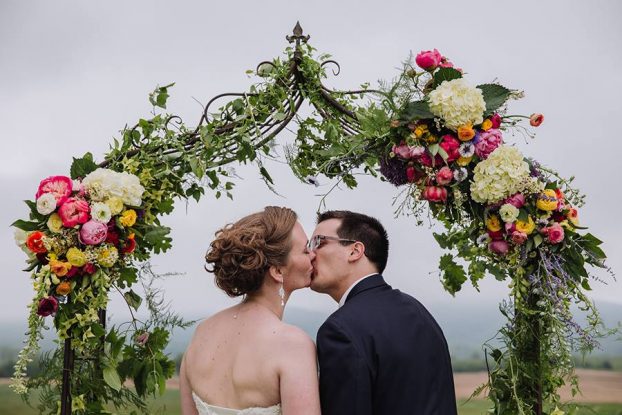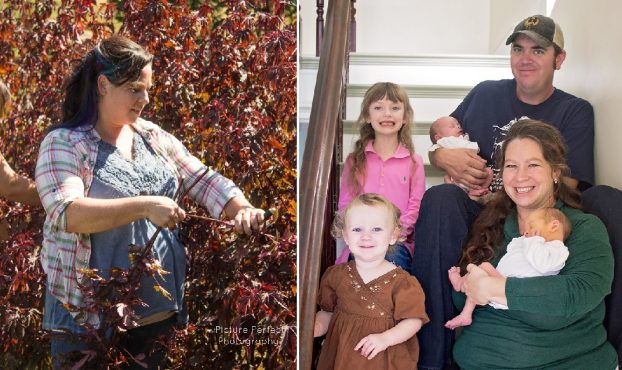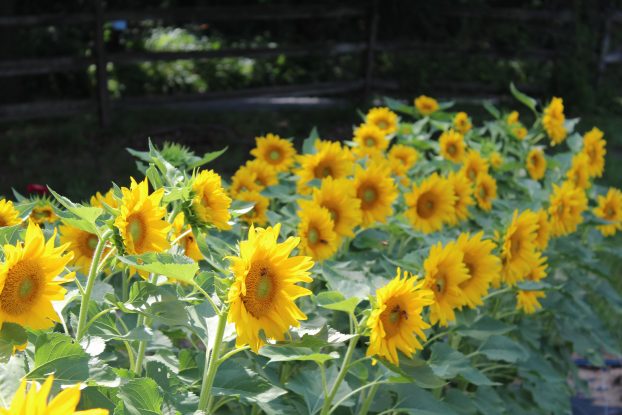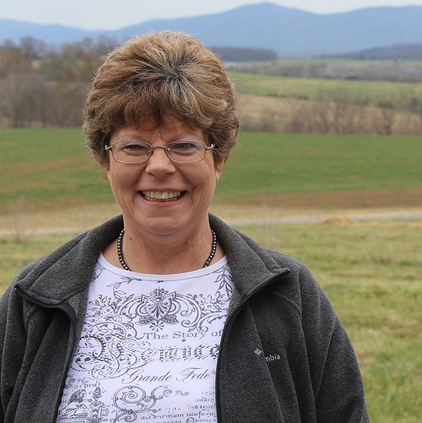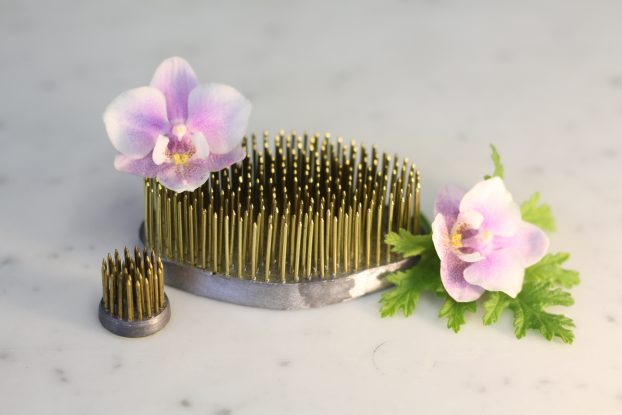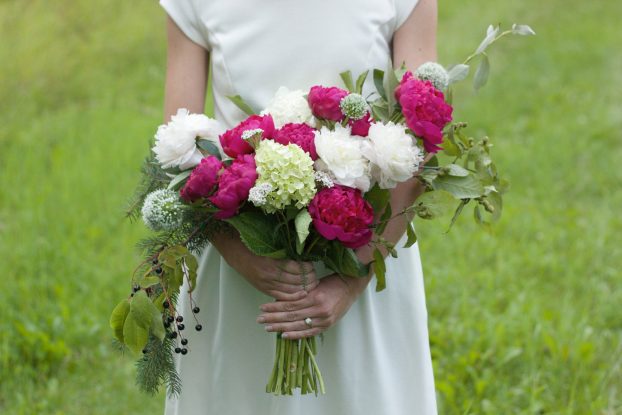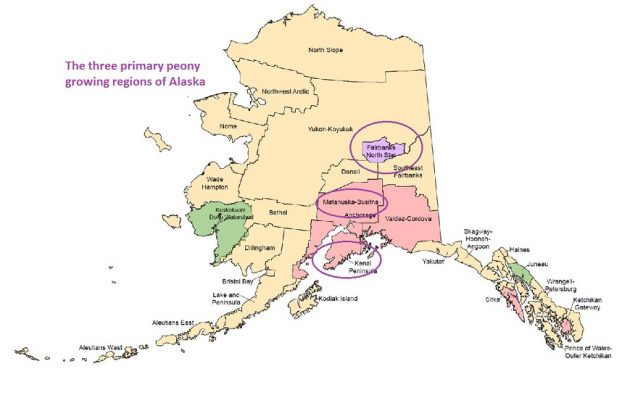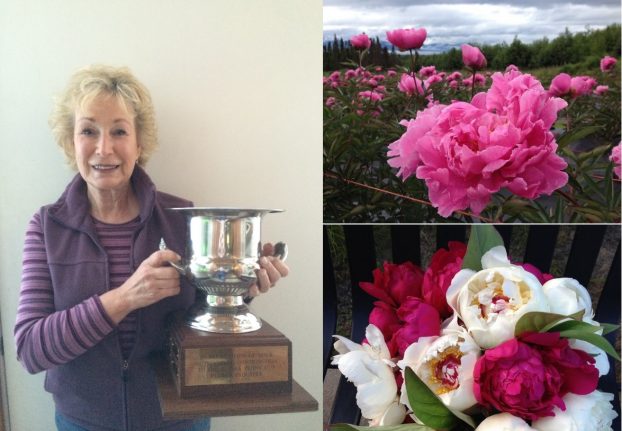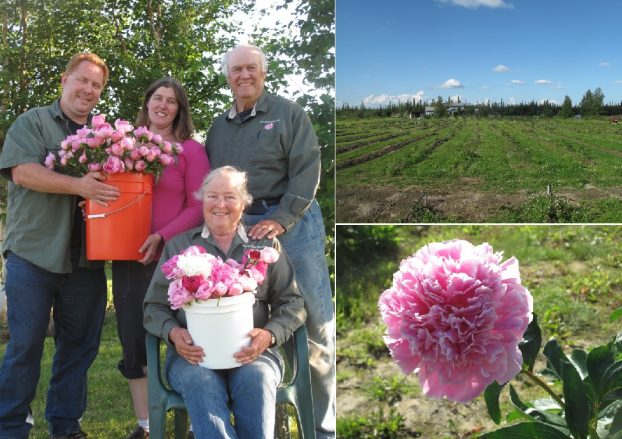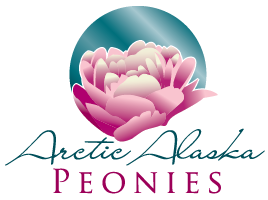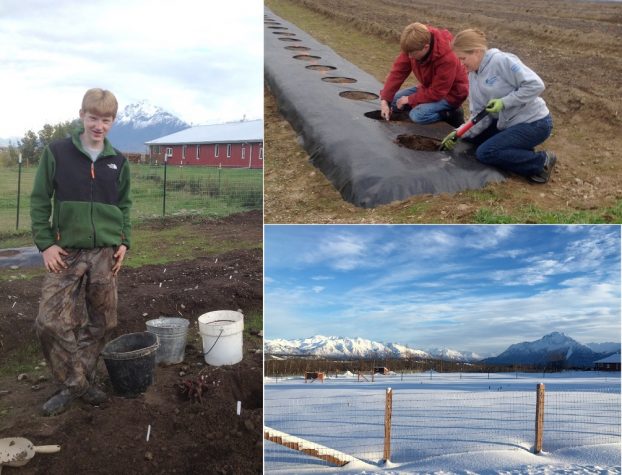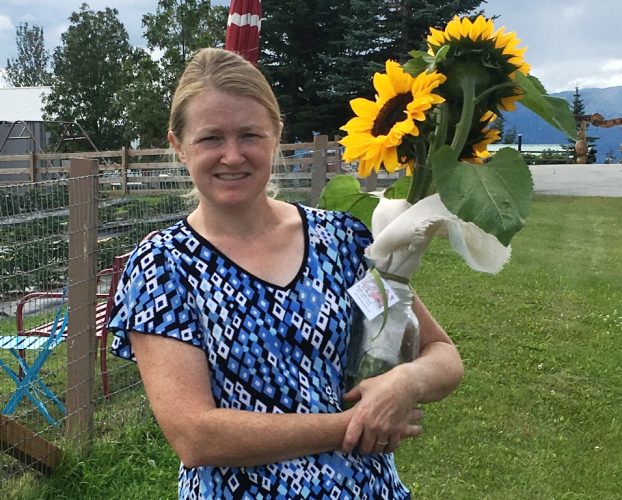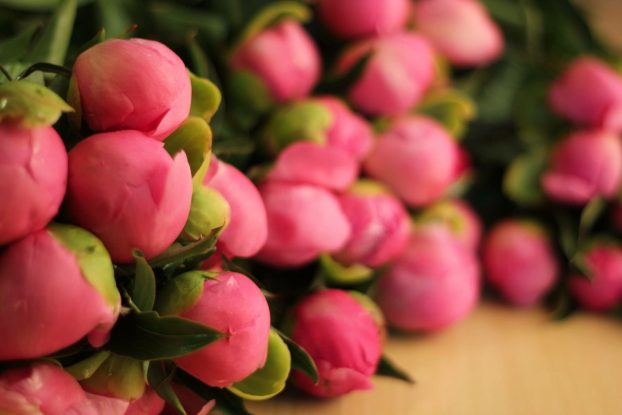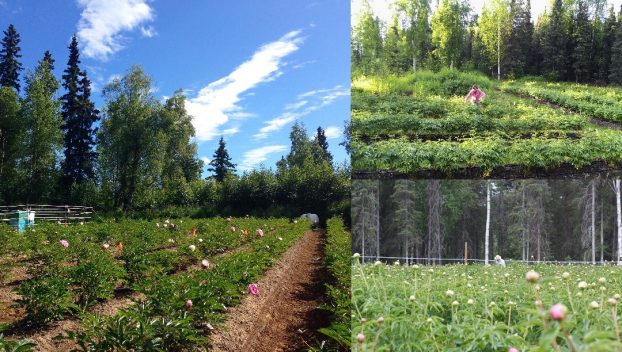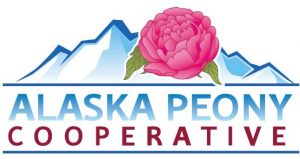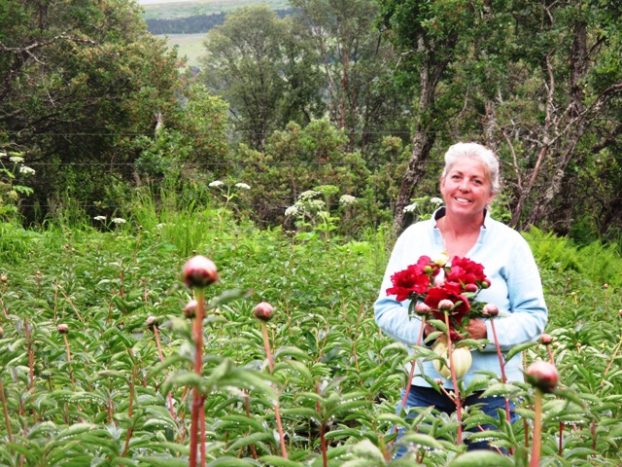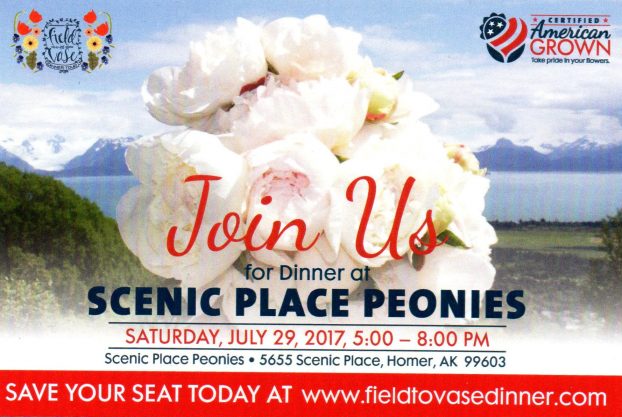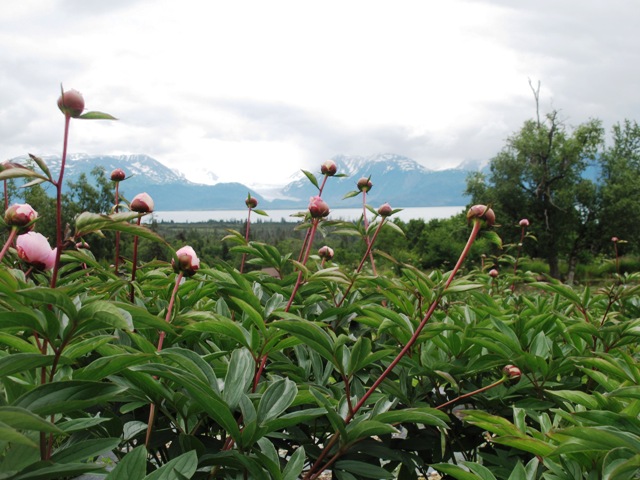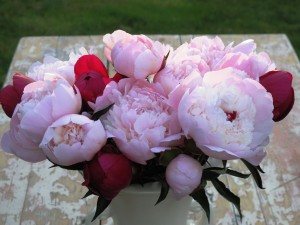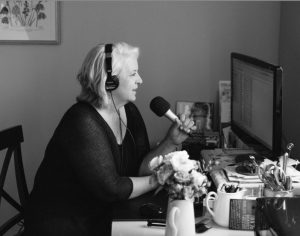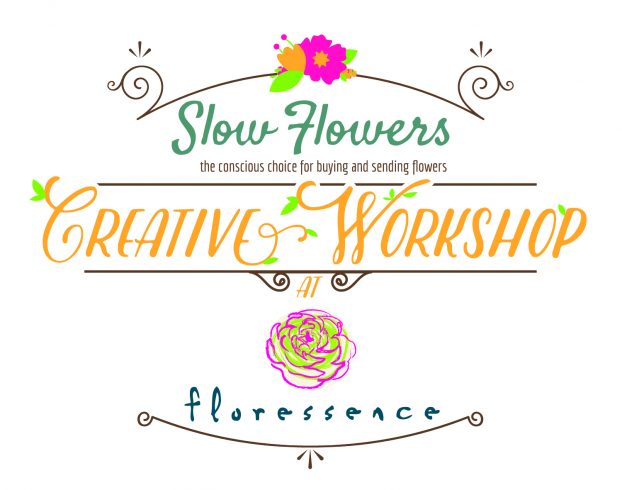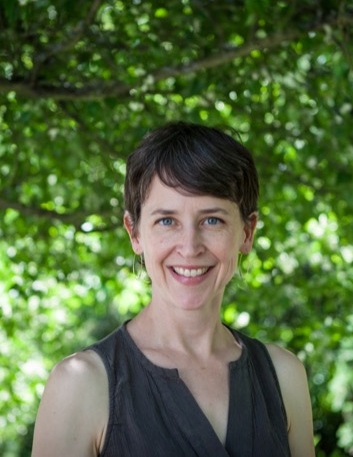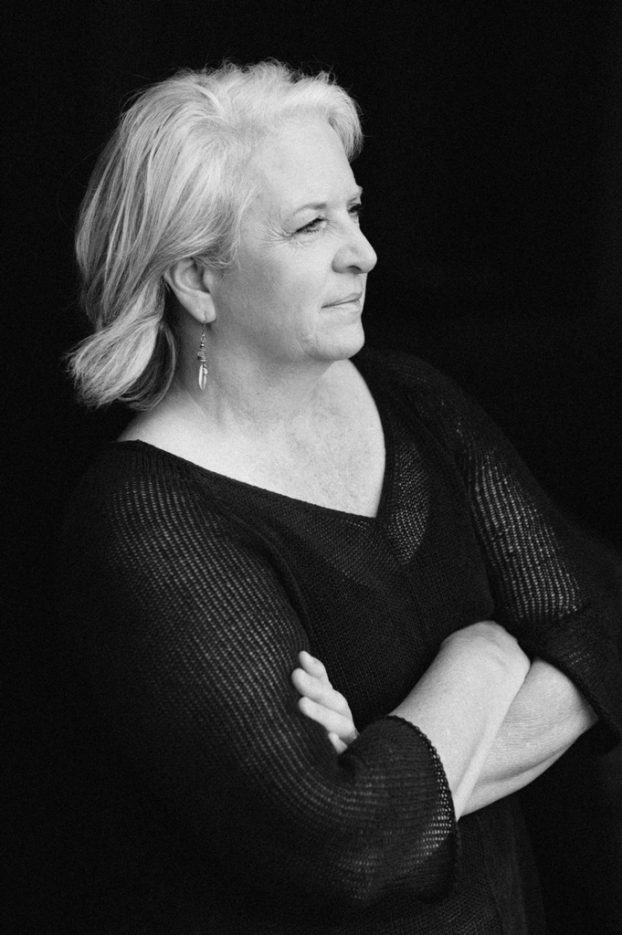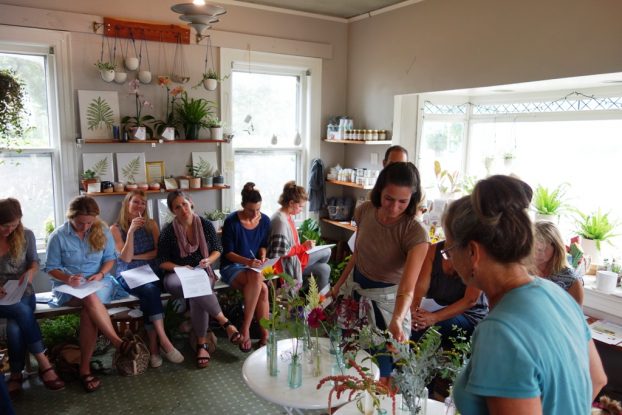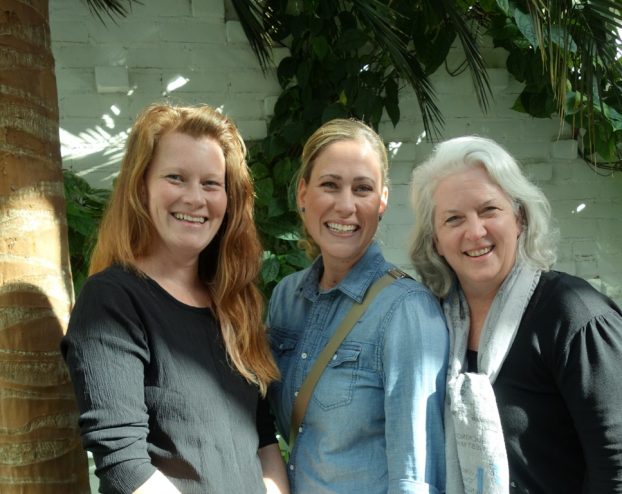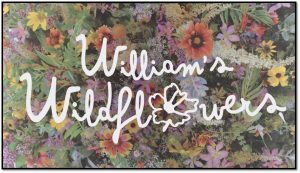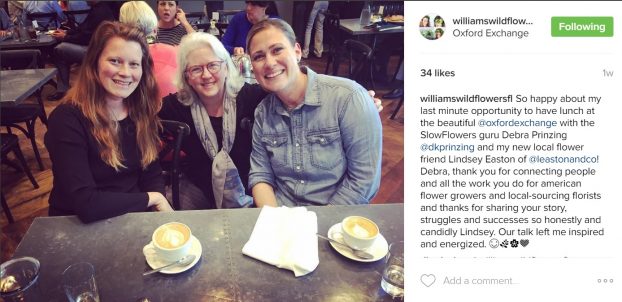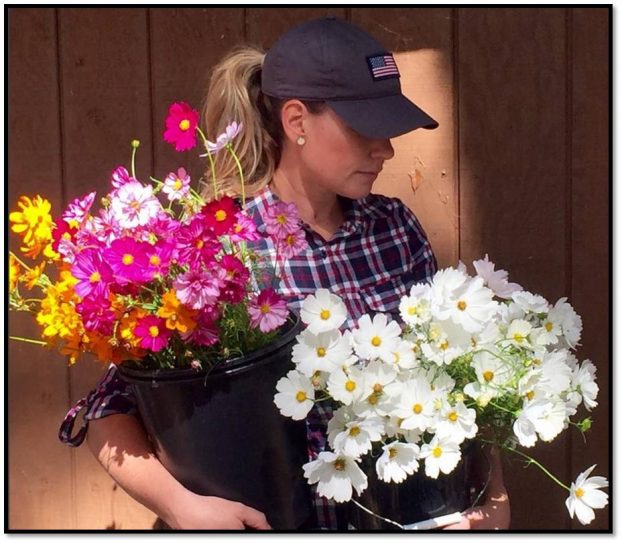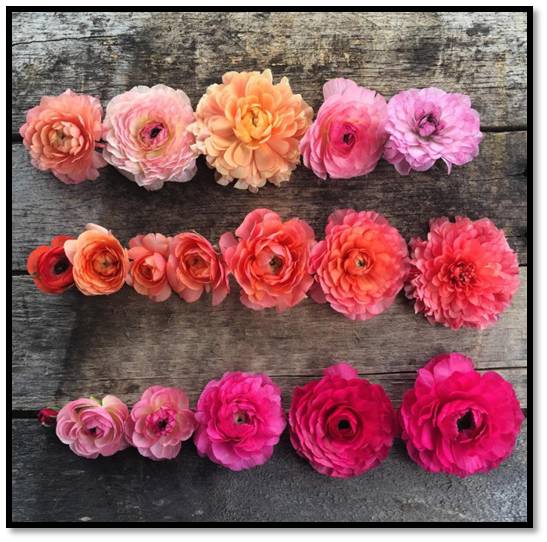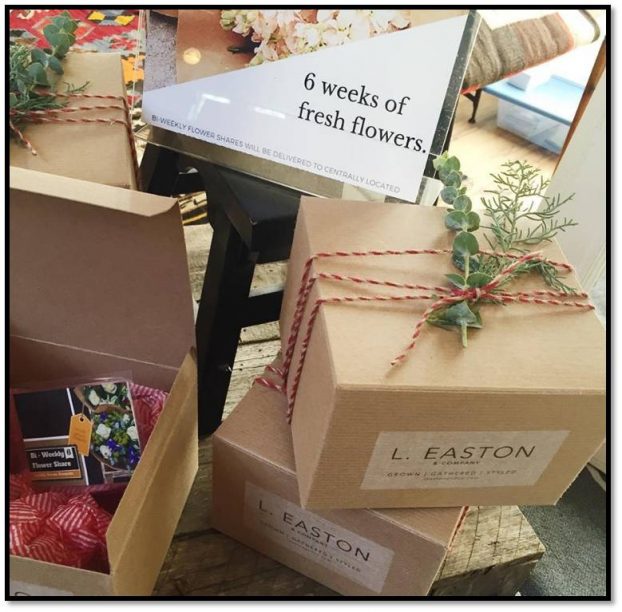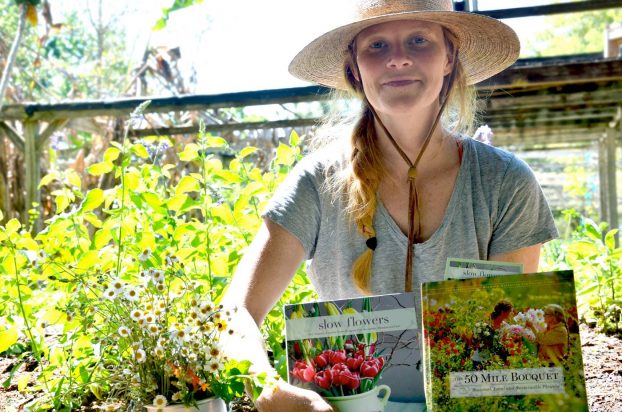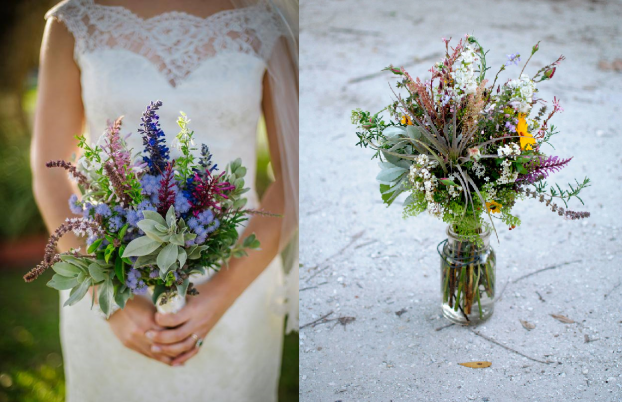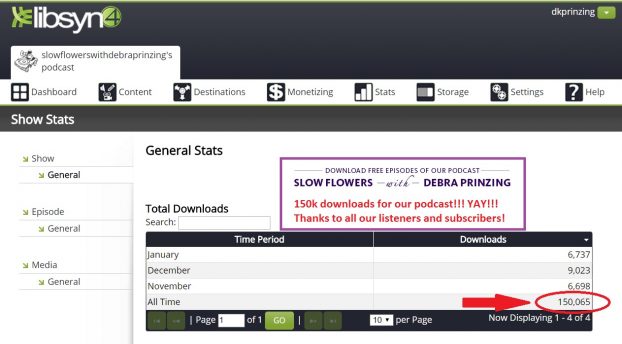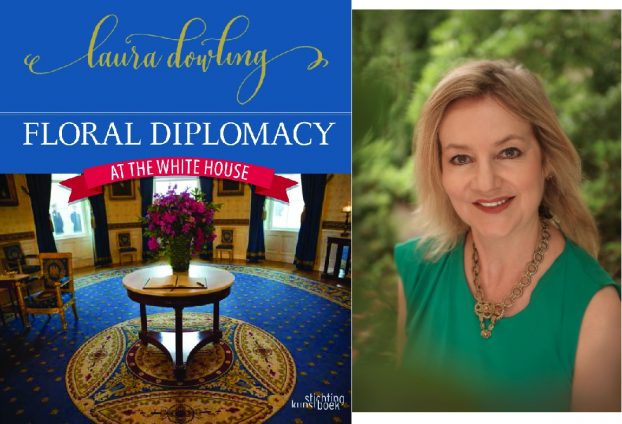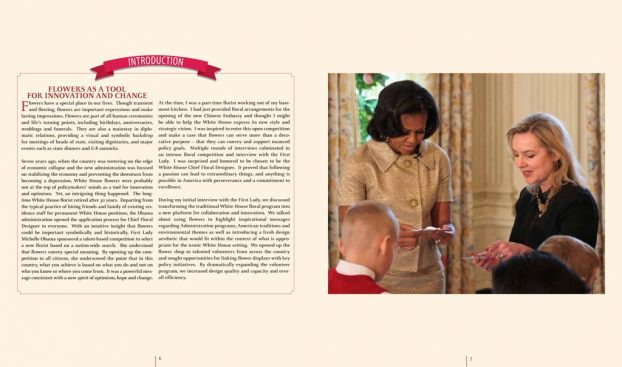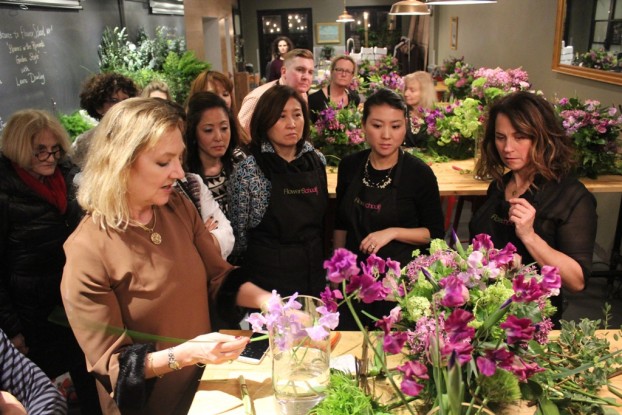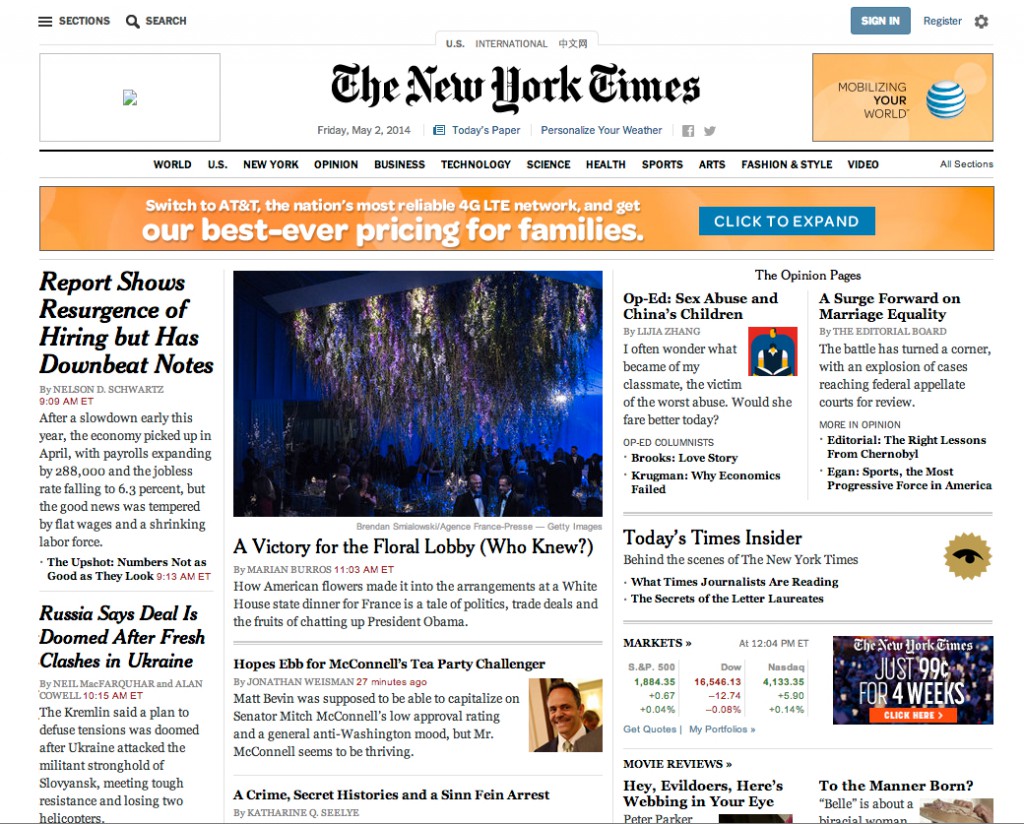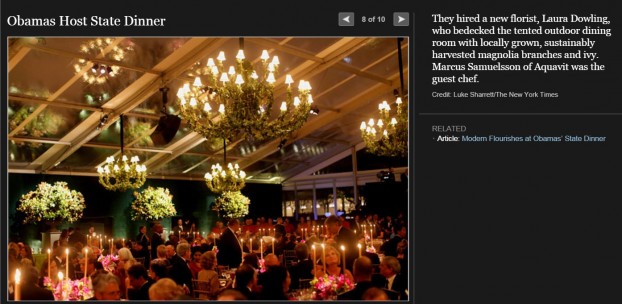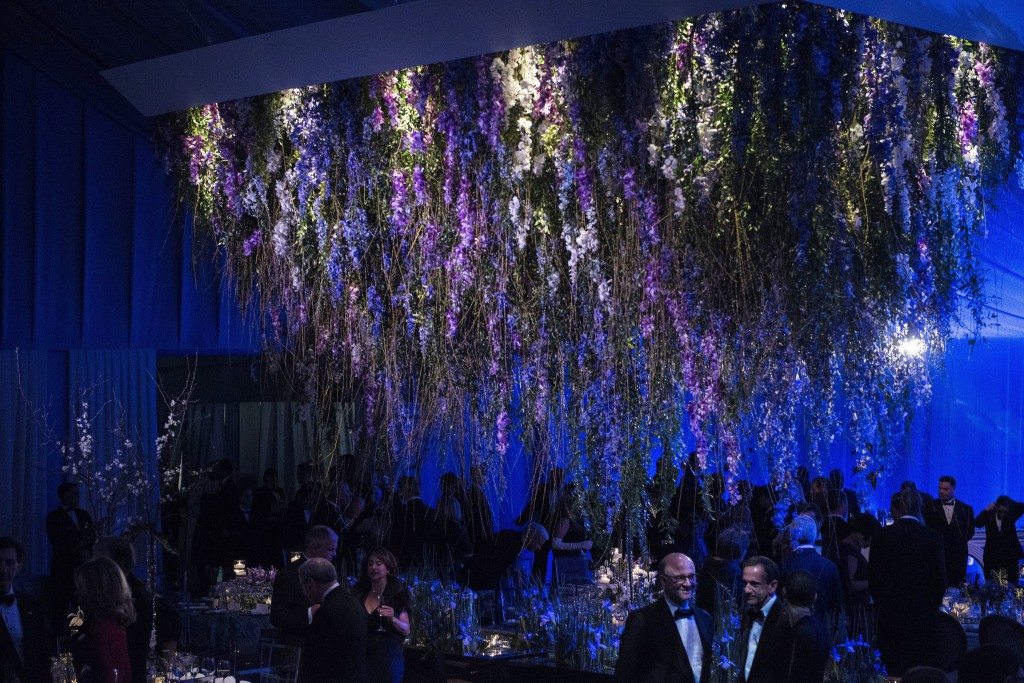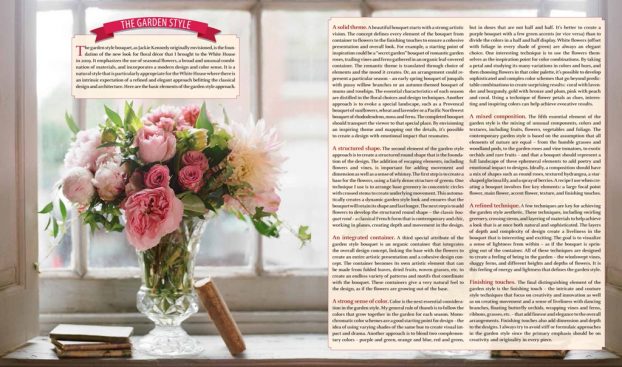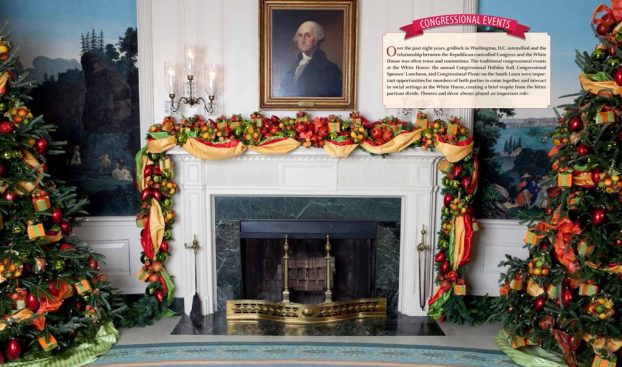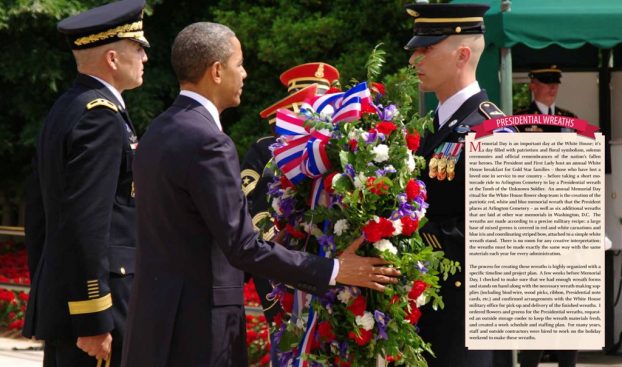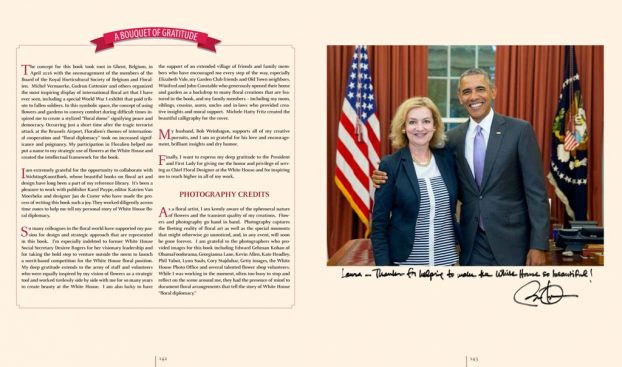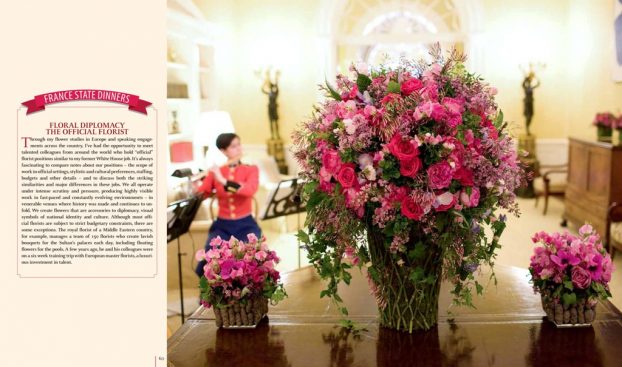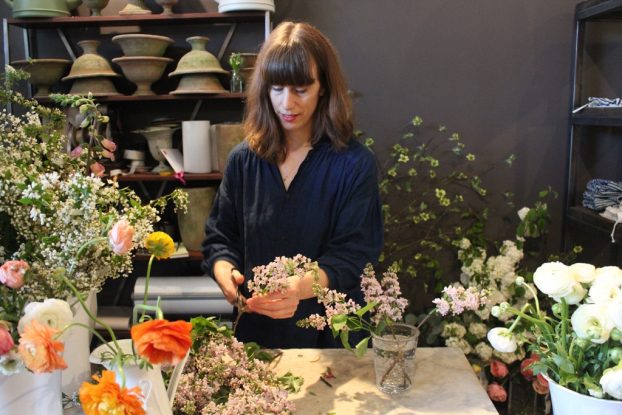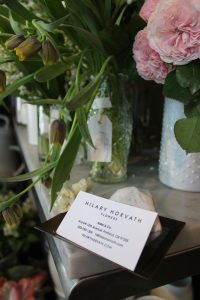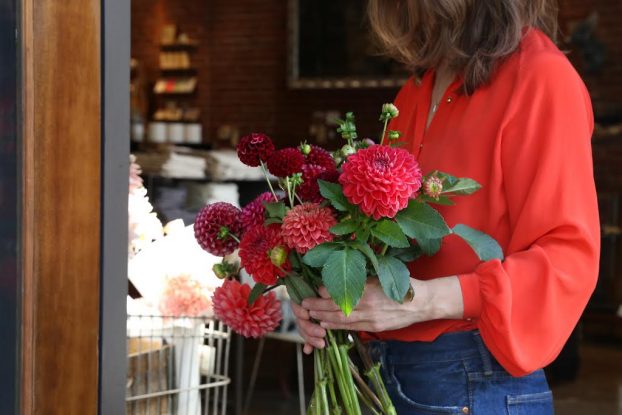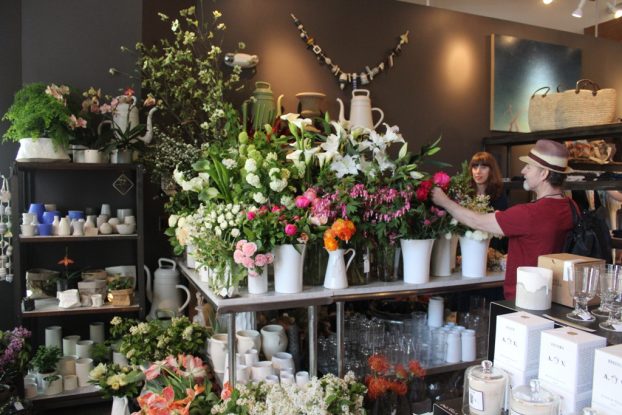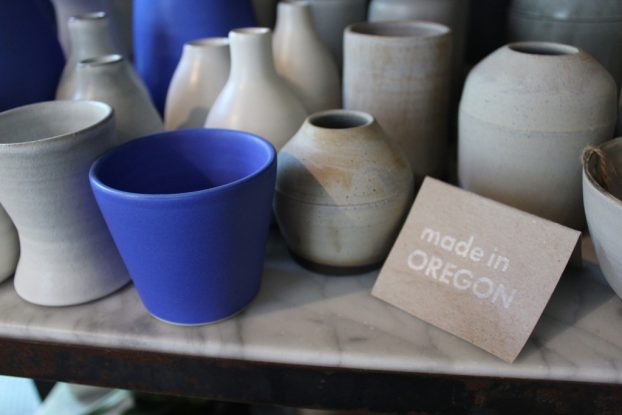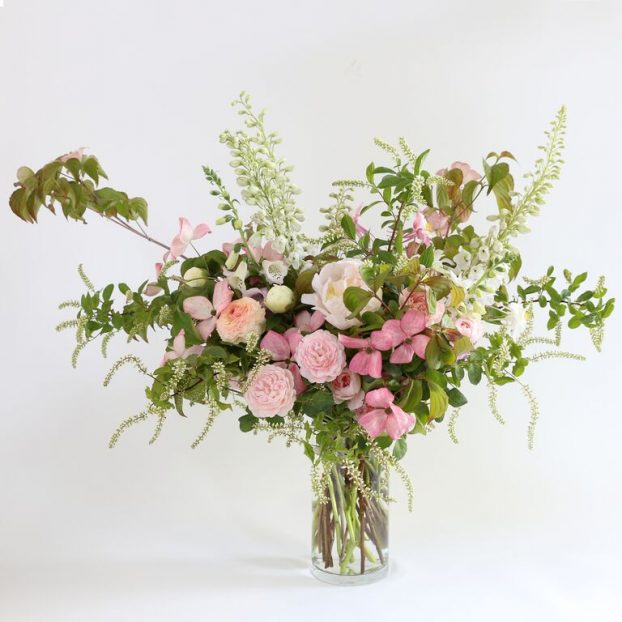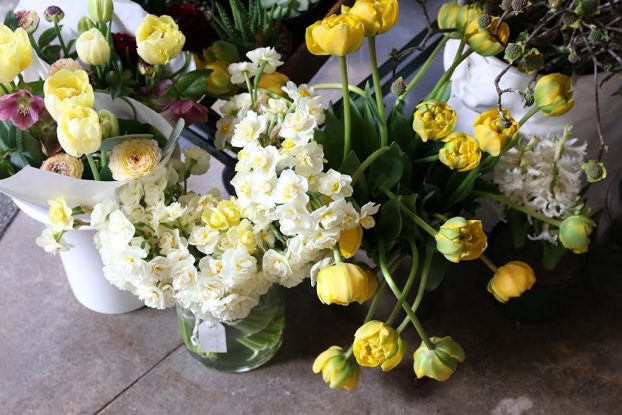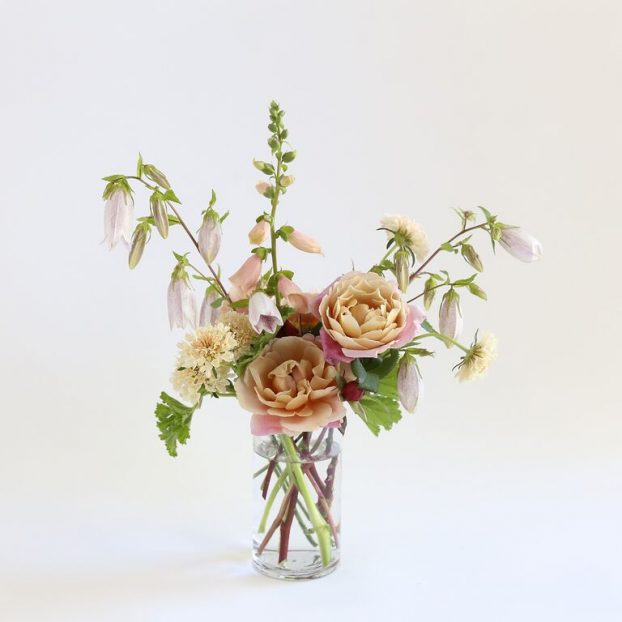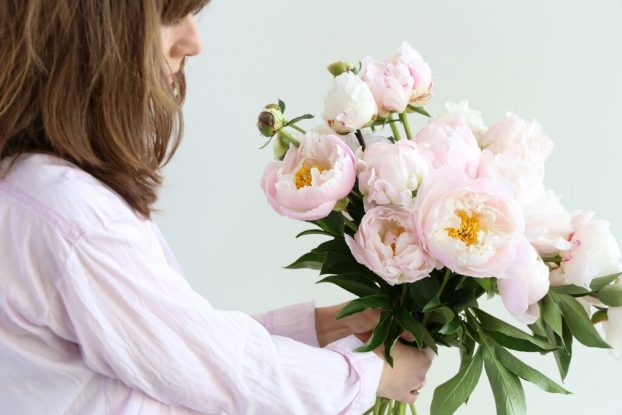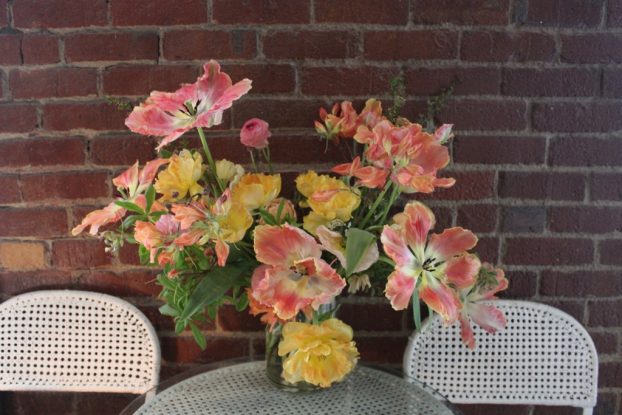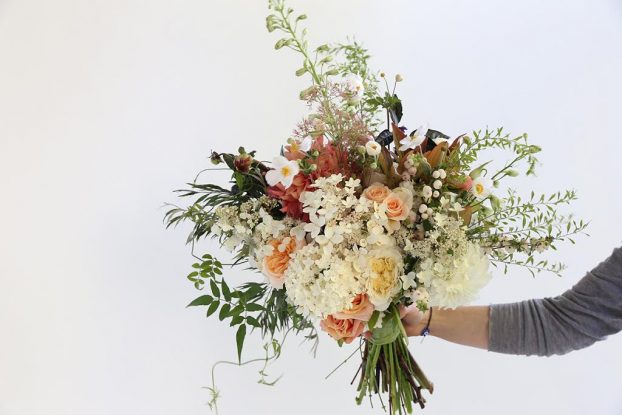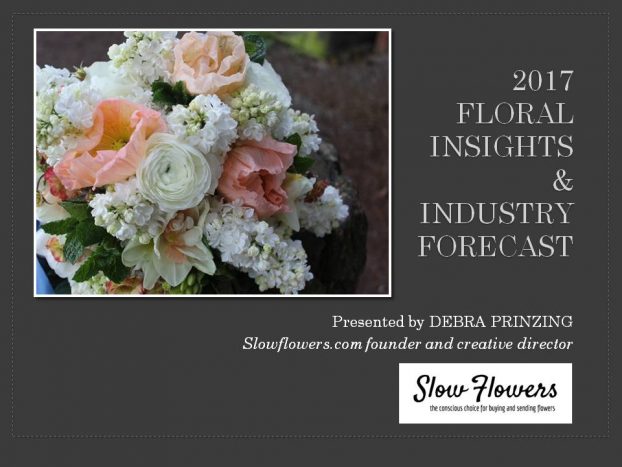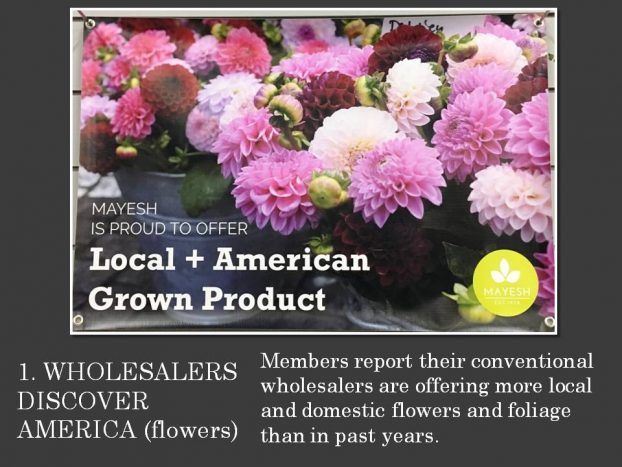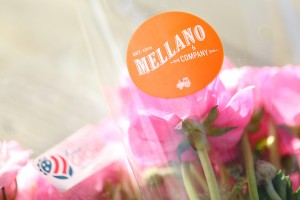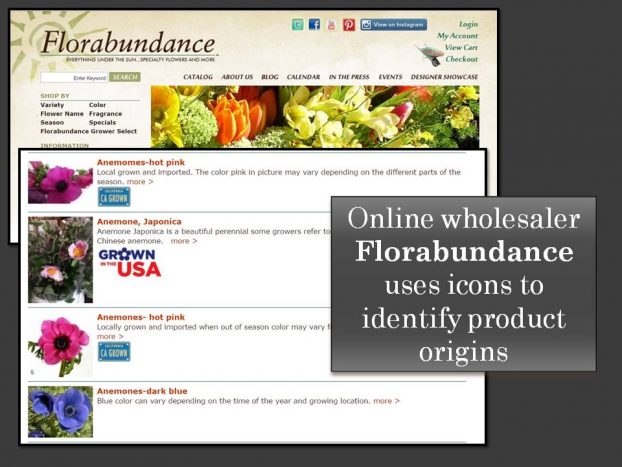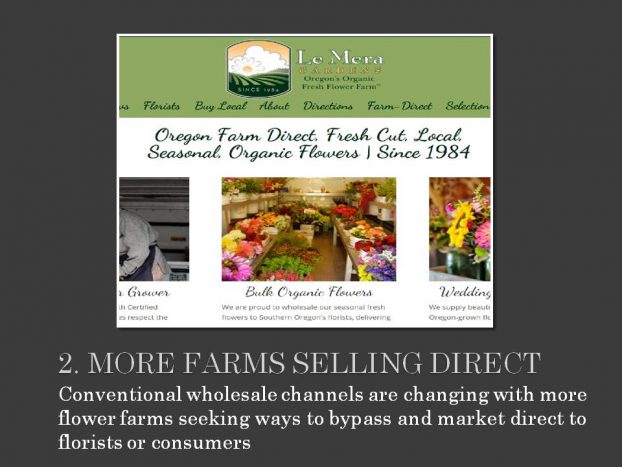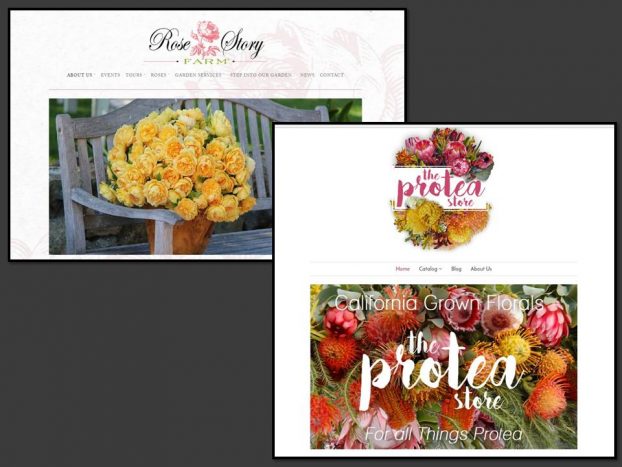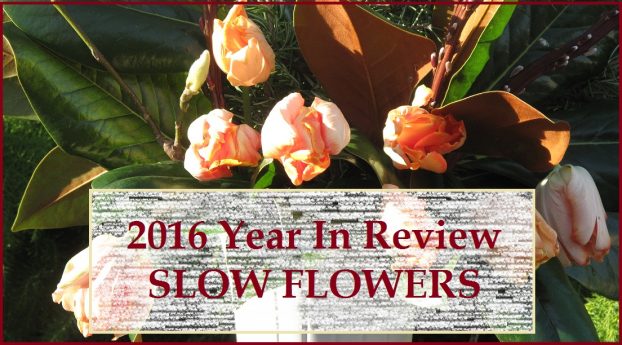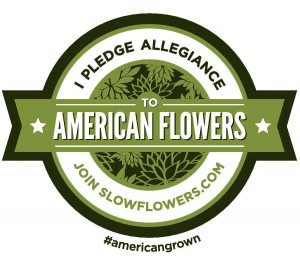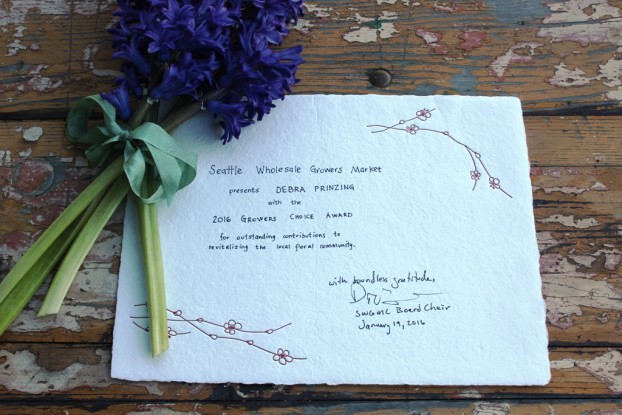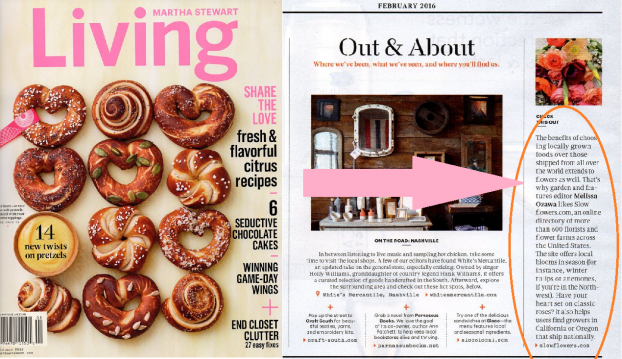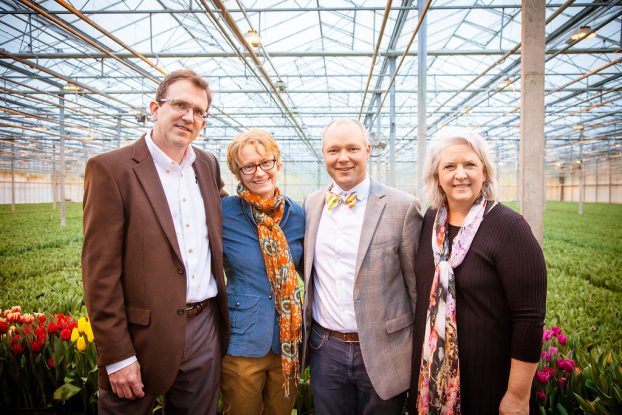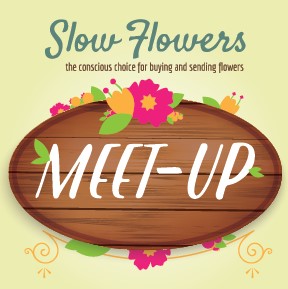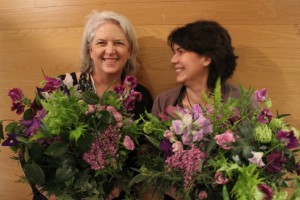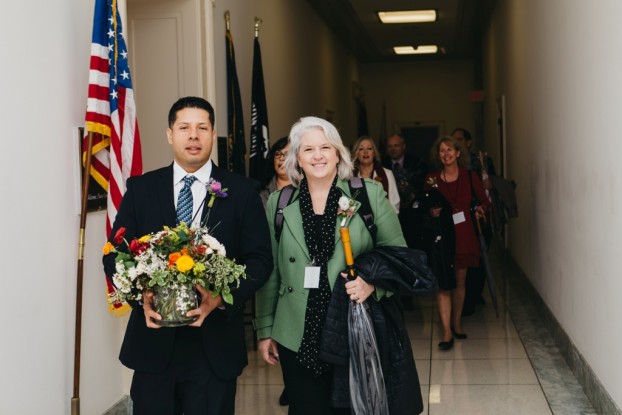Podcast: Play in new window | Download
Subscribe: Apple Podcasts | Podcast Index | RSS | More
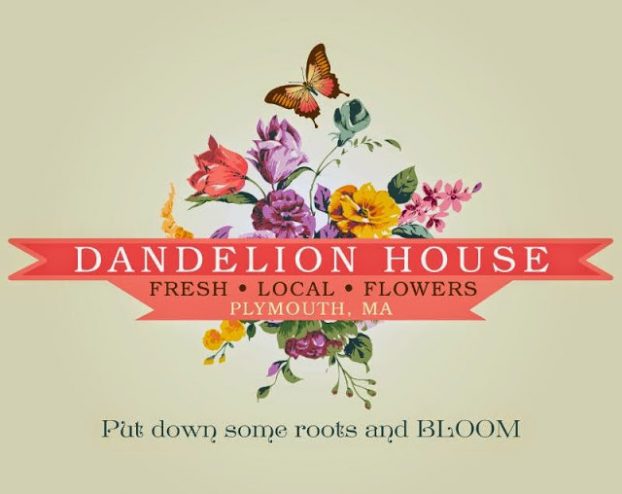
Today’s guest is Debbie Bosworth, owner of Dandelion House Flower Farm in Plymouth, Massachusetts. She worked with a graphic designer to create her logo, inspired by vintage flower seed packet art.
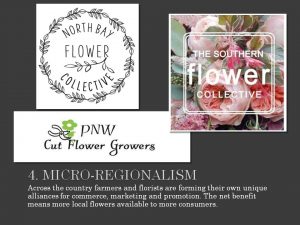 When I compiled the Floral Industry Insights for 2017, a forecast of the most exciting shifts taking place in the progressive Slow Flowers Movement, I highlighted micro-regionalism as a continuing occurrence gaining more momentum.
When I compiled the Floral Industry Insights for 2017, a forecast of the most exciting shifts taking place in the progressive Slow Flowers Movement, I highlighted micro-regionalism as a continuing occurrence gaining more momentum.
As I record today’s introduction, I’m getting ready to drive to Corvallis, Oregon, to join the Pacific Northwest Cut Flower Growers’ 3rd annual meet-up.
And the Ohio Flower Farmers are meeting this weekend, too — I should know because Susan Studer King of Buckeye Blooms asked me to donate books and send material to share with the attendees.
Increasingly, flower farmers, farmer-florists and floral designers eager to make local and regional connections are finding each other.
And today’s guest is behind this taking place in New England. Please meet Debbie Bosworth of Dandelion House Flower Farm, based in Plymouth, Massachusetts.
Like many of us, she and I met through social media. We corresponded and even planned a phone call last year, as Debbie was pursuing her business brand, “Backyard Flower Farming.”
Debbie grew up in Northern Nevada and Texas, and she migrated to New England 10 years ago with her Yankee husband of 20 years.
She went from career gal to being a creative homeschooling mom of two. She and her family are now firmly planted in the historic coastal town of Plymouth and they spend part of each summer in a tiny, off–grid beach cottage named “The Sea Horse.”
Debbie says her passions include growing and designing with seasonal flowers cut flowers, WRITING, ORGANIC gardening, PAINTING and repurposing VINTAGE furniture,
PHOTOGRAPHY, wholesome COOKING and tending to her flock of backyard CHICKENS.
She is an active blogger, and regular contributing writer for: the print edition of MaryJanesFarm Magazine; MaryJanesFarm Beach farmgirl blog, Community Chickens, a blog for Mother Earth News and Grit, and edible South Shore and South Coast Magazine, online and print editions. And she has contributed in the past to the Field to Vase blog.
She says: “I’m passionate about the domestic Slow Flowers Movement. In March of 2012 we removed a large area of sod in our backyard and planted 600 square feet of classic heirloom cut flowers, herbs and fillers. We are dedicated to using fresh, local sustainably grown flowers from our farm or nearby farms for design work. We sells flowers at the Plymouth Farmers Market in July, August and September and we provide flowers for small local weddings and events.”
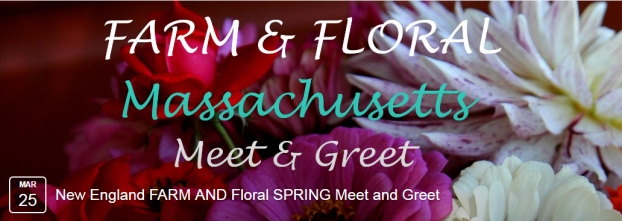
As you will hear, last year, Debbie created the New England Farmer-Florist Connection, which now has 240-plus members across the entire region.
On March 25th she and others will host the first regional “meet and greet” at Salted Root Farm in Marshfield, Massachusetts. I know you’ll be warmly welcomed if you’re in the area and want to connect with like-minded Slow Flowers folks. Jill Landry of Beach Plum Flora, Monica O’Malley-Tavares of Prince Snow Farm are co-hosts and Anna Jane Kocon of Little State Flower Co. will be the special guest speaker. Debbie reports that there will be donations from Slow Flowers, Neptune’s Harvest, Floret, Kraft Paper Company and other supporters. I hope you can check it out if you’re in the area.
After our interview concluded, Debbie sent me a lovely email and she asked me to share it in our show notes here. She wrote:
“One of the things I wanted to say was how your books, The 50 Mile Bouquet and Slow Flowers have ( and continue to ) inspire me. The first Flower Farming book I read before I ever planted my first seed was The Flower Farmer, by Lynn Byczynski, directly followed by your two books. I loved Lynn’s book but your books really spoke to the sustainable gardener/farmer in me and really helped to solidify me on my new path as a farmer/florist and the larger commitment to being a part of the slow flowers movement!”
Follow Debbie Bosworth at these social places:
Dandelion House Flower Farm on Facebook
Dandelion House Flower Farm on Pinterest
Dandelion House Flower Farm on Instagram
Thanks, Debbie! So much of what I am compelled to do as a storyteller is driven by passion, not by financial compensation. It’s gratifying to have that feedback from you. The Slow Flowers Podcast has been downloaded more than 160,000 times by listeners like you.
THANK YOU to each one of you for downloading, listening, commenting and sharing. It means so much.
If you value the content you receive each week, I invite you to show your thanks and support the Slow Flowers Podcast with a donation — the button can be found on our home page in the right column. Your contributions will help make it possible to transcribe future episodes of the Podcast.
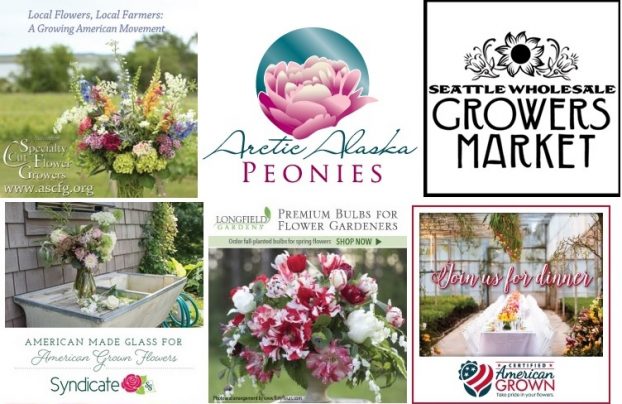
Thank you to our lead sponsor for 2017: Certified American Grown Flowers. The Certified American-Grown program and label provide a guarantee for designers and consumers on the source of their flowers. Take pride in your flowers and buy with confidence, ask for Certified American Grown Flowers. To learn more visit americangrownflowers.org.
We’re also grateful for support from Arctic Alaska Peonies, a cooperative of 50 family farms in the heart of Alaska providing high quality, American Grown peony flowers during the months of July and August. Visit them today at arcticalaskapeonies.com
And welcome to our newest sponsor, the Seattle Wholesale Growers Market, a farmer-owned cooperative committed to providing the very best the Pacific Northwest has to offer in cut flowers, foliage and plants. The Growers Market’s mission is to foster a vibrant marketplace that sustains local flower farms and provides top-quality products and service to the local floral industry. Find them at seattlewholesalegrowersmarket.com
Longfield Gardens has returned as a 2017 sponsor, and we couldn’t be happier to share their resources with you. Longfield Gardens provides home gardeners with high quality flower bulbs and perennials. Their online store offers plants for every region and every season, from tulips and daffodils to dahlias, caladiums and amaryllis. Visit them at lfgardens.com.
More sponsor thanks goes to Syndicate Sales, an American manufacturer of vases and accessories for the professional florist. Look for the American Flag Icon to find Syndicate’s USA-made products and join the Syndicate Stars loyalty program at syndicatesales.com.
And finally, thank you Association of Specialty Cut Flower Growers. Formed in 1988, ASCFG was created to educate, unite, and support commercial cut flower growers. It mission is to help growers produce high-quality floral material, and to foster and promote the local availability of that product. Learn more at ascfg.org.
I’m Debra Prinzing, host and producer of the Slow Flowers Podcast. Next week, you’re invited to join me in putting more American grown flowers on the table, one vase at a time. And If you like what you hear, please consider logging onto Itunes and posting a listener review.
The content and opinions expressed here are either mine alone or those of my guests alone, independent of any podcast sponsor or other person, company or organization.
The Slow Flowers Podcast is engineered and edited by Andrew Brenlan. Learn more about his work at KineticTreeFitness.com.









